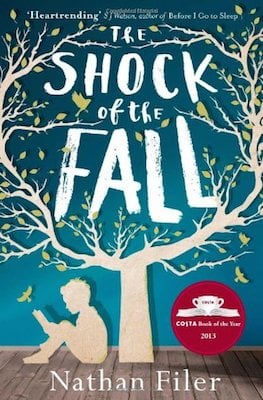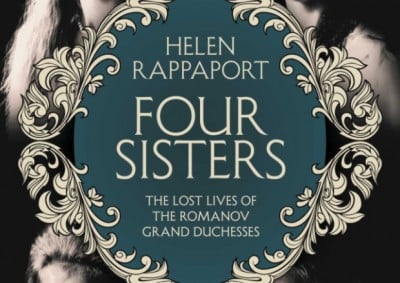Book Review: Station Eleven by Emily St John Mandel
March 2, 2015
[Image courtesy of mashable.com]
As something of a fan of dystopian literature, any blurb that contains the words ‘the world will never be the same again’ is likely to catch my attention. After all, I was one of the only people at school to read and enjoy Atwood’s A Handmaid’s Tale outside the classroom; I read McCarthy’s The Road in less than a day and spent the next week wandering around in a daze, wondering vaguely if I might be cannibalised; I even harbour a secret love of The Hunger Games trilogy, which I mostly attribute to my brief career as a teacher.
Reading the blurb of Emily St John Mandel’s Station Eleven, then, I had high hopes. Could this seemingly unassuming book from a previously unknown (to me, at least) Canadian writer deliver the story, emotion and imagination that I was so looking forward to?
Thankfully, it did. In abundance. And so, so much more.
If The Road had a sequel – assuming anyone is left after the rape and cannibalism, of course – it could well be Station Eleven.The novel follows several protagonists over several time zones with a single thread connecting them all: a series of comic books depicting the fictional spaceship Station Eleven. As we join the story, a famous actor dies on stage and the deadly Georgia flu virus is slowly killing 99% of the world’s population. Not a new premise, admittedly – but thankfully Mandel does not dwell more than a couple of chapters on this opening (excuse the pun). Instead, she callously abandons one protagonist for another, deftly skips past the gorier details of the pandemic and lands us smack bang in Year 20 ‘after the collapse’.
So what does life look like 20 years after the end of the world as we know it? It’s a mixed bag, truth be told. Here is a world in which civilisation is split into factions, where survivors are forced to live in abandoned petrol stations, where self-appointed ‘prophets’ control their flocks with fear and violence. However, it’s also a world in which friendships are paramount, where new life continues to be born and nurtured, where Shakespeare is performed in old wedding dresses to teary-eyed crowds. Throughout, Mandel maintains a calm, matter-of-fact prose, even as the horror of an empty aeroplane decaying on an abandoned runway is contrasted with a quiet death played out on a beach at sunset, and a glamorous dinner party fades into a fearful scene of hunter-and-hunted. Disparate images conjuring mixed emotions, all of which serve to remind us of Mandel’s central theme: ‘what was lost in the collapse: almost everything, almost everyone, but there is still such beauty’.
And it is this sense of the ‘beauty’ which Mandel harks back to throughout the novel. After all, when we join the story, the fight for survival is more or less over; as such, there is little ‘action’. Of course, that’s not to say that there is no grim material – child brides and choking on blood, to name a couple – but at the heart of this novel is an aching depiction of loss, nostalgia and, yes, beauty. The beauty of that which was lost in the world that once was. Of course, characters are mourned appropriately when necessary, but it is the lament for the finer details of the lost civilisation which hits home above all. In a single ‘incomplete list’ over 2 pages, we grieve the loss of chlorinated pools and cities; the death of film and flight; the end of social media and shining screens photographing concert stages – an eerily contemporary image, and all the more disturbing for it. Before reading this book, I could not have imagined mourning the loss of many of these things (flying in particular is an activity that I avoid at all costs) – but suddenly faced with a world without them, it is impossible not to start seeing the world differently. In that sense, this is not so much a novel about endings as it is about change.
The manner in which Mandel presents this much-changed world is occasionally disturbing, at times painfully wistful, but above all it is deeply affective.Whilst one would hope that the novel is not prophetic as such, Mandel’s vision of the future is entirely believable. In spite of this (or perhaps because of it), it’s not altogether terrifying. There is no sense of the panic or despair that is so prevalent in other books of this ilk; rather, the reader is left a feeling of hope that humanity will ultimately prevail, preserving the ‘beauty’ of the old world whilst striving to create beauty in the new. As the Travelling Symphony remind us time and again: ‘survival is insufficient’.
Taking everything into account, then, can Station Eleven be called a dystopian novel? Absolutely. This vision of the future is no utopia, and is certainly far from desirable. But despite its more disturbing moments, it’s the overwhelming sense of beauty, of nostalgia, of moving forwards whilst looking backwards, that makes this book so effective – and not easily forgotten. If Station Eleven ends up in the Museum of Civilisation in twenty years’ time next to Atwood, McCarthy and Orwell, I won’t be surprised – it would be a fitting memorial for a work such as this.
Nicki Davy
Station Eleven is available in paperback now for £7.99. For more details on Emily St John Mandel’s other work, visit her website.




Comments